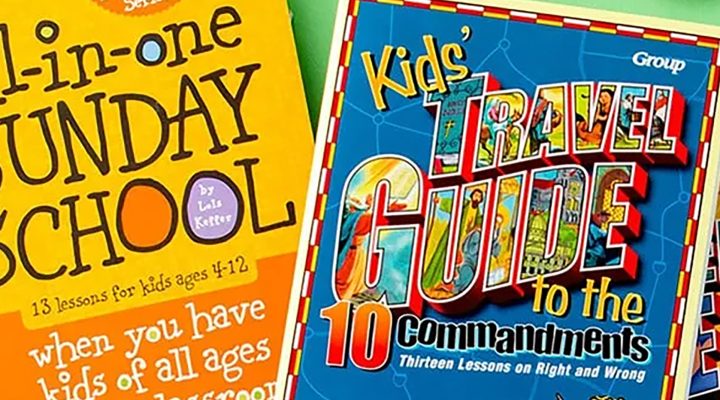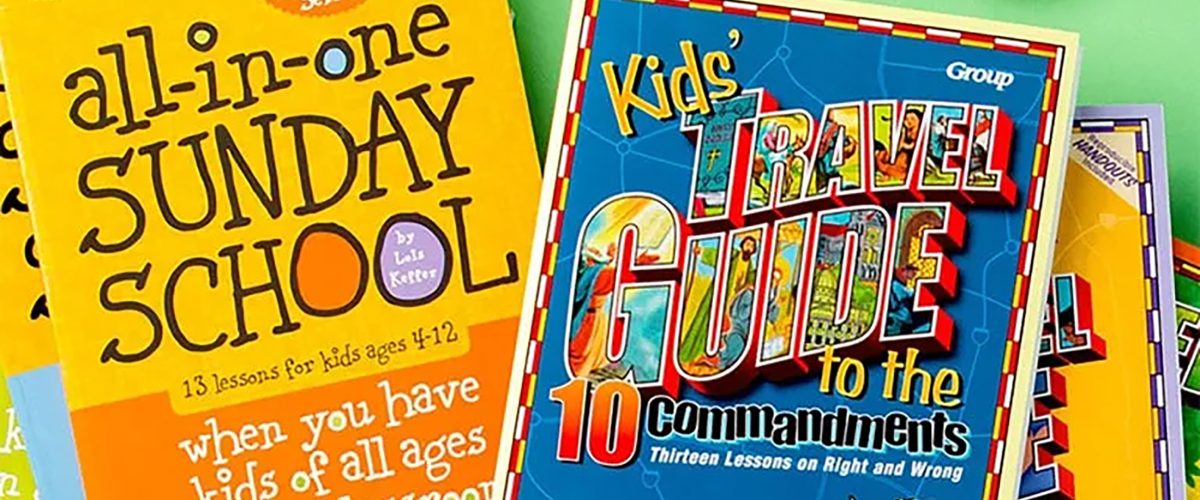The Christian publishing world is consolidating again, with news that David C. Cook plans to acquire Group Publishing.
The acquisition would make David C. Cook the largest independent publisher of curriculum for the interdenominational church market, a news release says.
Every word in that description matters. This acquisition mainly affects the curriculum market, not the book market. These are two separate yet interrelated things today. And when it comes to curriculum publishing, “interdenominational” means something that would have been hard to imagine 40 years ago.
Throughout most of the 20th century, curriculum publishing was done strictly along denominational lines. Southern Baptists led the pack on such publishing, done through the Baptist Sunday School Board, now rebranded as Lifeway Christian Resources.
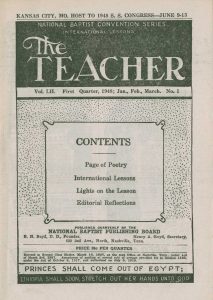
1948 copy of curriculum published by the National Baptist Convention.
Every Southern Baptist church bought its Sunday school curriculum — and curriculum for other programs — from the Sunday School Board. The Nashville-based publisher was so huge that its facilities occupied several blocks of real estate in downtown Nashville, adjacent to train tracks and truck bays that hauled in paper in quantities rivaling a major daily newspaper.
Every Protestant denomination had its own publishing house that produced curriculum to suit its theological and programmatic needs. Cokesbury served United Methodists; Presbyterian Publishing served the Presbyterian Church (USA); Augsburg-Fortress served the Evangelical Lutheran Church in America; Concordia served the Lutheran Church Missouri Synod; the National Baptist Publishing Board served the National Baptist Convention.
David C. Cook, founded in 1875, served the nondenominational market, with an initial focus on Sunday school curriculum.
An early disrupter
Group Publishing, on the other hand, was one of the disrupters of this tightly defined publishing market. Founded in 1974 by 22-year-old Thom Schultz, it published a 24-page tabloid with practical suggestions and ideas for church leadership. That evolved into an array of curriculum offerings.

Thom Schultz
In 1990, as the parachurch movement was reaching full steam in the United States, Group began producing weekly curriculum for youth Sunday school and small groups. That later expanded to adult curriculum too.
In a 1998 interview, Schultz said: “It was a great departure from traditional literature. It employed authentic learning elements with an active approach. We use experiences that are fun and engaging that will reflect a biblical experience. We take issues like peer pressure and dealing with parents and wrap biblical studies around them.”
By this time, the church curriculum market was getting flooded with nondenominational resources from parachurch publishers. Southern Baptist churches were among those that began branching out. No longer did all literature come from Nashville. Often churches, especially the larger ones, assembled a smorgasbord of curriculum from different sources.
A local church’s experience
I experienced this in the large progressive Baptist church I served as associate pastor from 2004 through mid-2020. In 2004, even though we had left the Southern Baptist Convention four years earlier, some of our senior adult classes insisted on using their Lifeway “quarterlies” for curriculum. Other adult classes used traditional curriculum published by Smyth and Helwys, a publisher founded out of the schism within the SBC.
In time, most of our adult classes abandoned traditional curriculum altogether. One of my ongoing tasks was to review new books and short-term studies from an array of publishers and provide recommendations to our teachers and class directors.
I can’t even count the number of curriculums and publishers we went through for preschool, children and youth Sunday school. Our well-educated teachers found theological and pedagogical problems with curriculum after curriculum. The market seemed to appeal to the lowest common denominator.
And vacation Bible school curriculum? Don’t even get me started. It was either so gimmicky as to be stupid or it was hard-selling evangelism and penal substitionary atonement to 6-year-olds.
These shifting patterns were not ours alone. Similar things were happening in churches across America — churches of all denominations.
What’s a book and what’s curriculum?
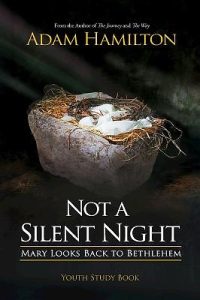 And here’s where the curriculum market and the book publishing market merge. The Christian book market has been compressing for several years through mergers and acquisitions. But there’s also a blurry line today between what’s a book and what’s curriculum.
And here’s where the curriculum market and the book publishing market merge. The Christian book market has been compressing for several years through mergers and acquisitions. But there’s also a blurry line today between what’s a book and what’s curriculum.
For example, Cokesbury, the Methodist publisher, began publishing books by Adam Hamilton, pastor of the UMC’s largest church, that made for perfect small-group studies. This was curriculum in book format, a blending of two previously separate genres. And they came with accompanying videos that could be used as brief introductions to each session.
Hamilton wasn’t the only one doing this but he was perhaps the best.
The days of uniform curriculum for Protestant churches in America are gone. You’ll find remnants of it in the most denominationally aligned churches, but those are the exception rather than the rule.
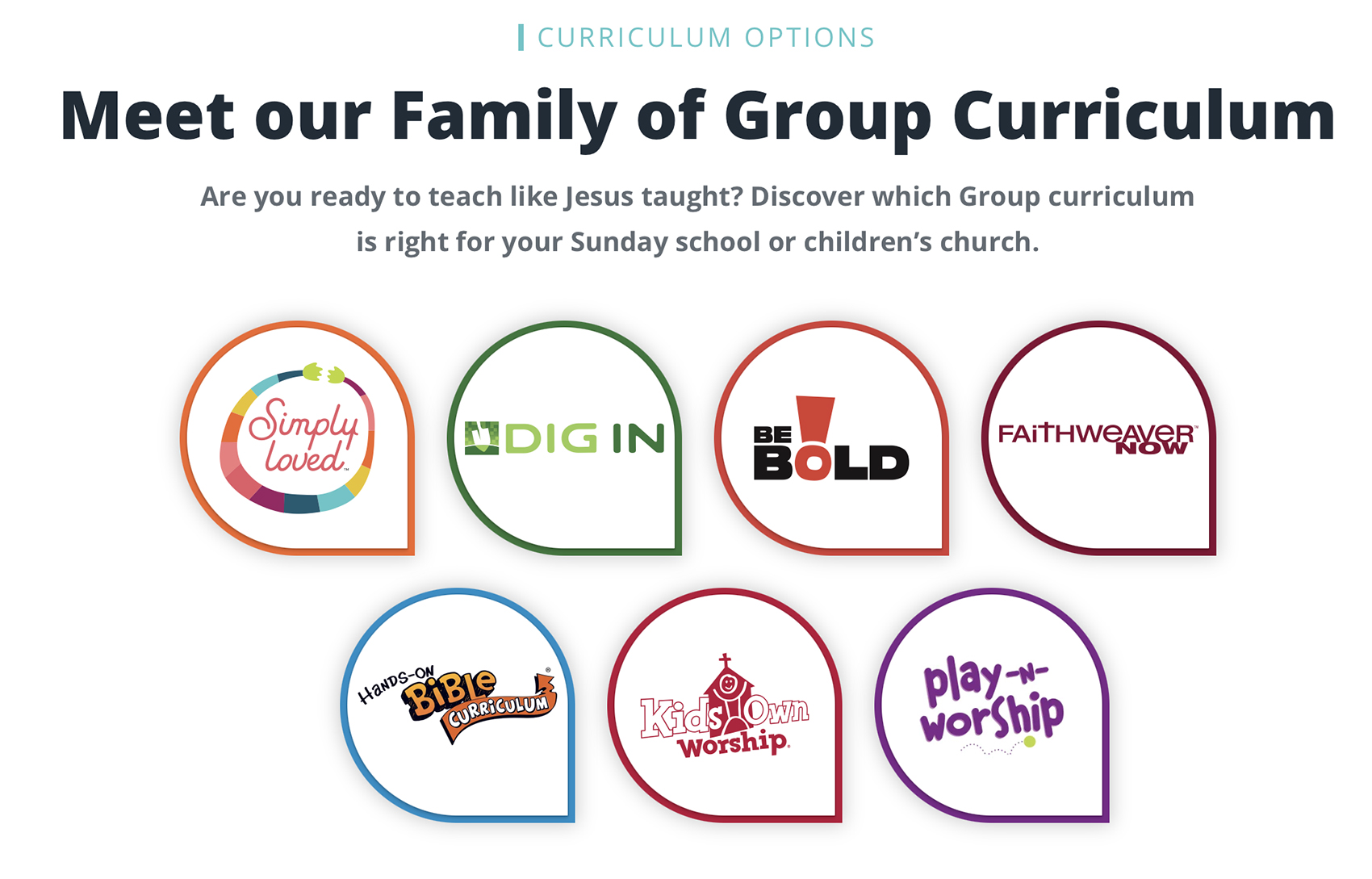
Screenshot of Group publishing curriculum options for children
What’s happened in SBC?
Consider this: The SBC counts more than 46,000 churches nationwide. Lifeway reported last summer that it “served more than 30,000 churches and 6 million people on any given Sunday through our ongoing Bible study curriculum.”
That means only two-thirds of SBC churches are using Lifeway curriculum. But the numbers are likely much worse than that because Lifeway also sells curriculum to many non-SBC churches.
Also, the SBC counts nearly 13 million members in its churches. If Lifeway sold curriculum that reached 6 million people, that’s less than half of all members of SBC congregations.
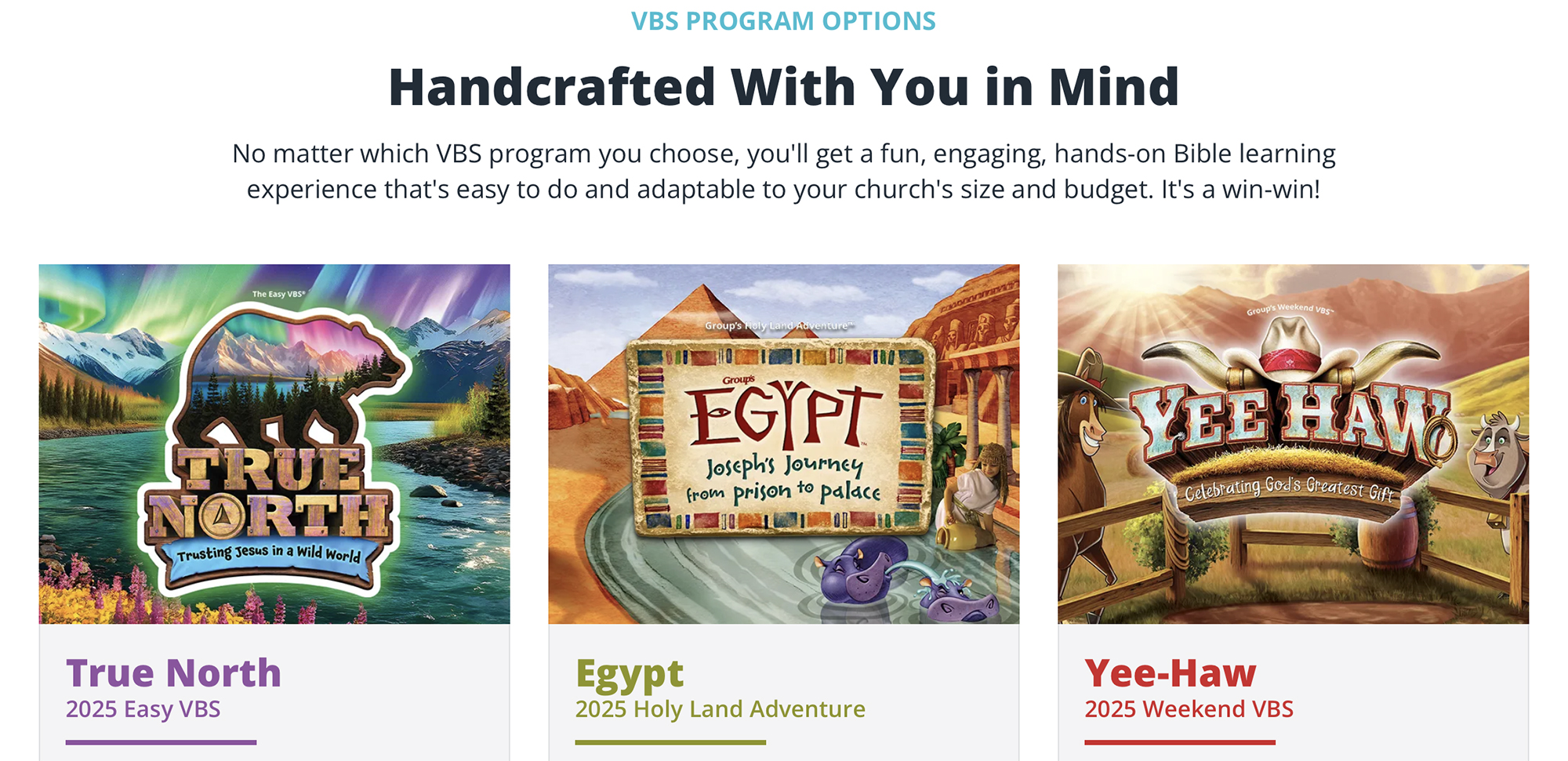
Screenshot of Group Publishing VBS options for 202
VBS
In its news release about the pending acquisition, David C. Cook described Group as “a leader in vacation Bible school programs.”
Perhaps nowhere else in church life has the curriculum market changed more than in VBS. Previously dominated by denominational loyalty — every SBC church had the same VBS theme and curriculum every year — this market now is the Wild West of curriculum. Not only are there multiple curriculum options on the market, most of them are undated, meaning they can be used now or later.
Group Publishing has three new VBS curriculums for 2025. Lifeway offers one.

Screenshot of Lifeway VBS for 2025
Every curriculum publisher has VBS products on the market, from denominational publishers to nondenominational publishers like Group and Orange. Some nonprofit ministries like Habitat for Humanity also have produced VBS curriculums.
“Group Publishing’s VBS programs include memorable and relevant children’s music we envision partnering well with our global music division, Integrity Music,” said David C. Cook CEO Bill Reeves. “Expanding our children’s ministry capabilities aligns with our commitment to continue serving all generations of the church.”
His comment highlights what is likely a key motivation for the acquisition: Merging curriculum and music.
David C. Cook has a history of acquiring other publishers, including Standard Publishing Commentary and Gospel Light and Integrity Music. But it has not been a player in the VBS market.
“Combining the talents and capabilities of the Group Publishing and David C. Cook teams will exponentially increase our ability to equip the church and engage young people in transformational discipleship,” Reeves said.
What’s especially interesting about this play for the VBS curriculum market is that VBS is on the decline in churches across America.
Duke Divinity School’s “Faith and Leadership” newsletter reported last year that “VBS may be undergoing significant changes that were accelerated by the pandemic, according to a multifaceted five-year study.”
That study, Exploring the Pandemic Impact on Congregations: Innovation Amidst and Beyond COVID-19, found in 2019 — the year before the pandemic — only 36% of churches offered VBS and/or church day camps during the summer. COVID killed VBS for 2020, but by 2021, 36% of churches offered VBS again. But that number started to decline again in 2022, the last year for which the EPIC study has numbers. Only 31% of churches said they offered VBS that year.
The reason for the choppy waters around VBS is not a lack of curriculum options. It is a lack of volunteers. Putting on VBS is one of the most volunteer-heavy demands of the year.
The same EPIC study found the percentage of church members volunteering in their churches has dropped in half.

